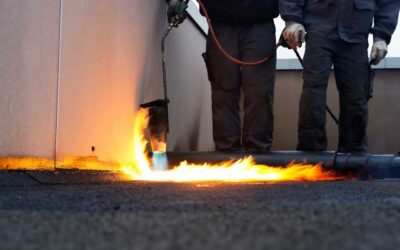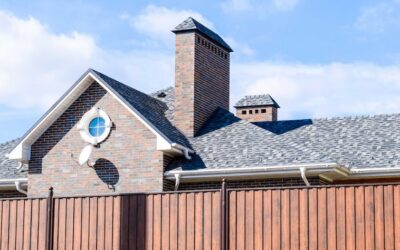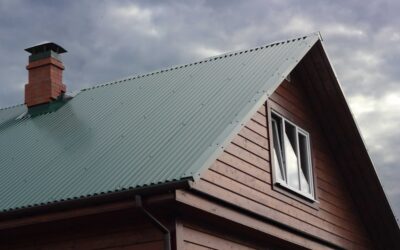🌿 Roof Replacement for Gazebo: The Ultimate Guide
Gazebos are charming outdoor retreats—central gathering spots, backyard anchors, and focal points of garden design. Yet time, weather, and wear can take their toll on gazebo roofs. When leaks, rot, or sagging surfaces appear, the solution isn’t always replacement; a full gazebo roof replacement often makes more sense—restoring function, beauty, and value.
This guide dives deep into gazebo roof replacement: when to DIY vs pro, roofing materials, cost insights, step-by-step process, maintenance, and FAQs.
1. Why Replace a Gazebo Roof?
✔ Signs You Need Replacement
- Leaks or water intrusion during rain
- Rotting or warped decking/rafters
- Curling or missing shingles/tiles
- Moss, algae, or unsightly streaks
- Excessive sag, indicating structural compromise
✔ Benefits of Replacement
- Brings back water-tight integrity
- Allows material upgrades to metal, cedar shakes, or composite shingles
- Offers a chance to enhance durability, insulation, or aesthetics
- Restores structure to prevent further damage
2. Material Choices for Gazebo Roofs
2.1 Asphalt Shingles
- Most common, budget-friendly, easy to install
- Lifespan: ~20–30 years
- Lightweight and accessible for DIYers
2.2 Architectural/Dimensional Shingles
- Thicker design, high wind-resistance
- Ideal for gazebo styles needing flair
2.3 Cedar Shakes or Shingles
- Wood tones that match natural settings
- Requires maintenance: staining, moss prevention
- Lifespan: ~30 years
2.4 Metal Roofing
- Long-lasting (40–70 years), fire-resistant
- Good for modern gazebos or heavy snow climates
- Higher upfront cost, light enough for most gazebo frames
2.5 Composite or Synthetic Shingles
- Made from rubber or plastic, mimic wood or slate
- Lightweight, fade-resistant, and insect-proof
- Eco-friendly with long warranties
2.6 Specialty Materials
- Clay or slate tiles for premium look (requires strong support)
- Polycarbonate or PVC panels for transparent or patio-style roofs
3. Planning & Preparation
3.1 Inspect the Structure
- Examine all framing, joists, decking, and ridge boards
- Probe for rot or insect damage
- Ensure gazebo base is square and stable
3.2 Choose the Right Material
- Balance style, climate, weight/load, durability, and aesthetics
- Remember: heavier materials require stronger support
3.3 Gather Tools & Safety Gear
- Roofing nails, hammer or nail gun
- Underlayment, drip edge, metal flashing
- Ladder, scaffolding, fall prevention (non-slip shoes, harnesses)
3.4 Secure Permits (if needed)
- Most small gazebos don’t require roofing permits—check local codes
4. Step-by-Step Gazebo Roof Replacement
Here’s a full, clear breakdown of the replacement process:
Step 1: Remove Old Roof
- Remove old roofing material, trim edges clean
- Inspect and repair or replace deck boards as needed
- Clean debris thoroughly
Step 2: Install Underlayment & Edging
- Add felt or synthetic underlayment, overlap by ~4″
- Secure drip edge or fascia mount over edges to guide water
- Add ice-and-water shield in high-precipitation areas
Step 3: Flash Skirts & Penetrations
- Carefully seal around vents, posts, decorative elements
- Metal flashing helps prevent leaks at junctions
Step 4: Install Roofing Material
- Lay shingles, shakes, tiles, or metal panels per pattern
- Use correct fasteners and spacing
- Ridge, hips, or peak capped properly
Step 5: Tidy Up & Final Checks
- Clean up nails and debris
- Pressure-wash if needed to remove leftover residue
- Inspect for misaligned or lifted pieces
5. Cost Breakdown & Budgeting
| Item | DIY Estimated Cost | Pro Installation Cost |
|---|---|---|
| Asphalt shingles | $1,500–$3,000 | $2,500–$5,000 |
| Architectural shingles | $2,000–$3,500 | $3,500–$6,500 |
| Cedar shake roofing | $2,500–$4,000 | $4,500–$8,000 |
| Metal panels | $3,000–$5,500 | $5,500–$10,000 |
| Composite shingles | $2,500–$4,500 | $4,500–$8,500 |
| Decking & framing repairs | $500–$1,500 | $1,500–$4,000 |
Factors that affect pricing:
- Size & shape of gazebo
- Local labor/waste disposal costs
- Material quality and thickness
6. Hiring a Professional vs Doing It Yourself
DIY Pros
- Lower cost and full oversight
- Best suited for simple gabled or hip-style gazebos
DIY Cons
- Safety risks (roof height, ladder use)
- Less warranty coverage
- Complex shapes may be tricky
Hiring a Pro
- Expert framing, decking repair, and material installation
- Builds to code, with warranties
- Easier advice on material selection
- Quick turnaround, minimal homeowner involvement
7. Maintenance After Installation
Regular Checks
- Inspect for curled shingles, loose fasteners
- Clean debris every 6–12 months
Moss/Algae Control
- Install zinc or copper strips under ridge cap
- Wash with low-pressure soap if moss develops
Recoat & Reseal
- Cedar or composite may need re-staining or resealing every 3–5 years
Flashing & Gutter-Like Trim
- Inspect metal edging for lift and seal roof-trim junctions
8. Design & Functional Upgrades
- Install lighting: wire downlight kits beneath the roof deck
- Add ventilation: ridge vent or louver for airflow and mold prevention
- Add gutter channels: direct downspouts away from patio stones
- Fireproofing materials: for dry climates (metal or fire-rated shingles)
9. FAQs
Q: Can I replace a gazebo roof without replacing the frame?
Yes—unless the frame shows sagging or rot. A clean roof means drilling into solid wood.
Q: How long does a gazebo roof last?
- Asphalt: 20–30 years
- Architectural: 25–40 years
- Cedar: 30 years
- Metal: 40–70 years
- Composite: 30+ years
Q: Do gazebos need ventilation?
Ventilation helps prevent heat and moisture buildup—especially under finished wood ceilings or in hot climates.
Q: Do I need a permit for a gazebo roof replacement?
Typically not, but local rules vary. Confirm with your local permit office if structure is over a certain size.
Q: Can I replace only part of the roof?
Yes—partial replacement or patching is possible, but to match material and color, full re-roofing is often preferred.
10. Ready to Restore Your Gazebo?
A well-built gazebo roof replacement isn’t just a repair—it’s an upgrade that boosts functionality, visual appeal, and your property’s overall value.
✅ Next Steps
- Inspect your structure and note problem areas
- Decide on roofing material, balancing cost and aesthetics
- Evaluate whether to DIY or hire a licensed roofer
- Get multiple quotes, include framing repairs and clean-up
- Timely install in spring–fall for best conditions
✅ Final Takeaway
Gazebo roof replacement is more than cosmetic—it’s about safeguarding your outdoor investment. With the right materials and professional support, you can enjoy a weather-proof gazebo that enhances your yard for years.
 (440) 307-2060
(440) 307-2060




